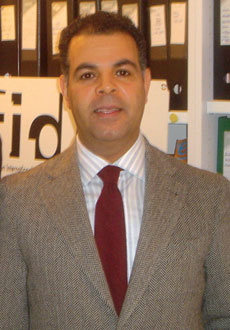
|
 |
 |
|
|
|
|
|
|
|
|
|
|
|
|
|
|
|
|
|
|
|
|
|
|
A Public Role Needed to Confront Violence
Hasan Moosa Shafaei December 2009 and January 2010, witnessed an escalation of violence and riots. Roads were blocked by burning tyres and rubbish bins, electric generators and street lamps were vandalized and civilians and human rights activists were assaulted including a Municipal Council member whose car and house were set ablaze. Usually these incidents take place during the night in villages and involved clashes between rioters and the security forces, who in turn resorted to the use of tear gas, rubber bullets and the detention of rioters. It is notable that these incidents escalate whenever a delegation of international human rights organizations visits Bahrain. Some members of these delegations are taken to the sites where riots break out in order to promote the idea that youth violence is justified, since it represents a form of protest against governmental policies. Public debate in the local media reveals three main reasons to explain the rioting phenomena in the country: Violence is primarily politically motivated, since advocates of violence aim to achieve political goals. They do not have any specific demands from the political system; on the contrary they wish to abolish the whole political process and the reform project. There are indications that some weak and unpopular political parties attempt (despite their condemnation of the violence) to take advantage of the situation by presenting irrelevant solutions in order to strengthen their positions in the existing political process. Most of those involved in the riots are unemployed youths with social problems as a result of family disintegration. Many did not have the opportunity to complete their education as well as the failure to find a suitable role to channel the energy and enthusiasm of youth. Government mistakes and shortcomings in dealing with public services in villages where riots take place. Despite all efforts, these shortcomings are still obvious, which makes the youth feel that they are being treated unjustly, especially when their conditions are compared to other areas. Therefore, the development and speedy completion of public services will significantly contribute to the eradication of the rioting phenomena. All human rights and political activists, without exception, agree on condemning rioting, violence and the financial and human losses they cause. They also agree that the Government bears some responsibility and that violence is not justified because of the available margin of peaceful freedom of expression. In addition, they agree that the security solution is important but is not a solution in stopping violence and vandalism. It seems that the official position also supports this idea, based on the Ministry of Interior’s statement which was published on the 26th of January 2010. It stated that there are those who want to lure the security forces into clashes with rioters so that victims fall and then the incidents are exploited politically. Sheikh Rashid bin Abdullah Al Khalifa proposed complementing the security solution when he said: ‘numerous procedures are needed in order to contain anger of the street. What we have now is a group who openly tampers with national security. On the other hand, those who are concerned with the security of the country remain hesitant in condemning the violence. This hesitation leaves matters open and allows the free movement of anyone who wants to tamper with the security of the country’. The question which must be posed is why did affected villagers refrain from protesting against the violent youth? Obviously, there are those who support the rioters; however, villagers feared retaliation from youth leaders who incite against anyone who opposes them. Hence confronting the rioters might cost the villagers both morally and financially. Secondly, any public initiative which confronts the youth requires support from both the Government and influential social forces. The Government’s only initiative was to call upon the public to confront the rioters. As for the influential Al Wifaq Society, it did not wish to be seen as a cause for schism between the various social segments and preferred condemnation as opposed to direct confrontation. Any public initiative to stop the rioting can only be achieved through both official actor, the Government, and unofficial actor represented by Al Wifaq Society. There is a price which has to be paid in order to eradicate violence and it seems that everyone is hesitant because they do not wish to lose any of their public popularity and morals. |
